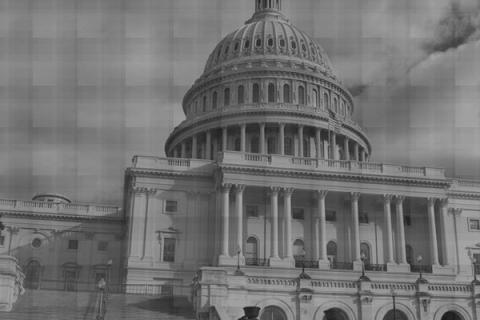Analyst urges immediate action to stem state deficit
By Rebecca Kimitch, Staff Writer
On a day when the Legislative Analyst suggested raising the state income tax by 5 percent, one termed-out Republican lawmaker said his party may have no alternative than to support tax hikes.
California Legislative Analyst Mac Taylor said Tuesday the state deficit could reach $28 billion by June 2010. Besides recommending the income tax hike, he urged lawmakers to act immediately on Gov. Arnold Schwarzenegger's proposals to eliminate this fiscal year's $11.2 billion deficit. The governor last week proposed billions of dollars in cuts and a temporary, 1.5 percent hike in the state sales tax.
"I don't think we are going to get there without some sort of tax modification," said state Sen. Bob Margett, R-Arcadia. "The vehicle license fee is in that realm, so is that proposal of the tippler tax - a nickel for every drink.
"The governor could say, `I need this half-cent sales tax.' And if he says that (the sales tax) dies at some point in time, and if he says this is how it would be spent ... I think you would probably find Republicans saying we have no other route to take."
Republicans have so far adamantly opposed using a tax increase to bridge California's budget deficit. Because a tax hike requires approval of two-thirds of the Legislature, at least eight Republican lawmakers would have to approve it. Margett's legislative career, which began in 1995, ends Nov. 30.
Local lawmakers said regardless of the proposal, the governor needs to be active at the negotiating table.
"Where are the eight Republicans going to come from? It is incumbent on the governor to provide this solution, versus just holding a press conference making a proposal, and walking away," said Assemblyman Anthony Portantino, D-Pasadena. "He has to say: `I might be a movie star, I might be the governor, but I really have sit down at the table and craft a bipartisan solution."'
Schwarzenegger has said that Republican lawmakers might be more willing to support a tax increase, despite past opposition, because the election is over and the economy has reached a level of crisis.
But Margett said Schwarzenegger has not reached out to rank-and-file Republicans yet.
Margett said that to get GOP support, a sales-tax increase would need to be temporary and the proposal would need to include specific education and welfare reforms.
Besides a sales-tax increase, Schwarzenegger's proposal includes $4.4 billion in across-the-board spending cuts.
Taylor said the two-pronged approach was necessary. He supported the framework of the governor's plan and called it "comprehensive and ambitious" because it does not rely on borrowing.
The state's revenue collapse is so bad that if lawmakers did nothing, California would face $22 billion shortfalls each year from 2010 to 2014, Taylor said.
"We have to do something in the ballpark of what the governor proposed ... ongoing spending reductions and some tax increases," Taylor said.
Assemblyman Mike Eng, D-El Monte, said a vote on budget reforms could come as early as next Wednesday.
Taylor's report Tuesday said cuts alone will not solve California's budget deficit because the state's weakening economy is cutting the flow of tax revenue.
Last week, Schwarzenegger had projected a $24.5 billion deficit for the rest of this fiscal year and the one that runs from July 1, 2009, to June 30, 2010. But the analyst's office estimated tax revenue will be even lower, which will widen the shortfall another $3.5 billion.
Since the governor signed the overdue state budget in September, revenue has been lower than expected. It is $1 billion below the $22.6 billion that was expected for the first quarter, according to the state Department of Finance.
"With the expected slow recovery of the state's economy, it is imperative that the Legislature attack the grim budget problem aggressively, making permanent improvements to the state's fiscal outlook," Taylor wrote in his report.
He said elected officials should do more to raise revenue because the governor's proposals would address only about half the state's long-term problems.
In addition to an income tax increase, which would be deductible on federal tax returns, Taylor's report offered a list of potential revenue sources for lawmakers to consider.
One option was to boost the licensing fee on vehicles, which Schwarzenegger cut when he took office in 2003. That action cost the state about $6 billion a year.
The legislative analyst said increasing a portion of the vehicle license fee would generate about $1.6 billion annually, money that could be used by local governments on public safety and mental health programs. The state would benefit because it would not have to compensate local governments for the amount they lost when Schwarzenegger cut the licensing fee.
The state's financial officers have been urging swift action amid a Wall Street nosedive and as the housing market continues its slide.
The tightened credit market is adding to California's fiscal misery. The state is having trouble borrowing money to pay its daily expenses, a routine action the state takes each year until most of its tax revenue arrives in the spring.
State Treasurer Bill Lockyer cited unfavorable market conditions in postponing the issue of $2 billion in short-term loans next week.
Lawmakers have scheduled a budget hearing on Friday to debate the governor's proposals.
The Associated Press contributed to this story.
Image
Image

Category